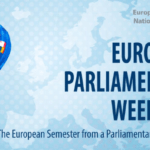The European Commission has recently published a report setting out a number of actions to further strengthen the social agenda in air transport.
This unprecedented report highlights the main opportunities and challenges faced by aircrews (pilots and cabin crew) in Europe. It aims to improve legal certainty for aircrews by providing clarifications on their protection under EU law. Maintaining and promoting high social standards is a top priority for the EU’s Aviation Strategy.
This builds on the strong social agenda put forward by President Juncker. The cornerstone of this agenda is the European Pillar of Social Rights, adopted in 2017, which aims to ensure that existing social standards are fit for purpose in the 21st century labour market.
The measures include:
- Setting up an ad hoc group of experts from both aviation and labour authorities to advise the Commission and Member States on how labour law may be enforced appropriately in aviation;
- Exploring ways to tackle undeclared work in the aviation sector, with a special focus on bogus self-employment of aircrews and cross-border collaboration between competent authorities;
- Ensuring that airlines’ safety management systems take into account all forms of employment and working arrangements, including staff employed via intermediaries and those who are self-employed;
- Organising a high-level workshop to take stock of progress made on the social agenda for aircrews since 2015, and to help identify possible ways forward;
- Sharing of best practices for attracting and retaining women in aircrews by aviation stakeholders through the EU Platform for change;
- Continuing to promote high social and labour standards for international aviation by proposing ambitious social and labour clauses in EU aviation agreements with third countries.
Recent developments in the aviation sector – increased competition, automation and digitalisation – also had an impact on the work force, notably through the development of atypical forms of employment. This has led to legal uncertainty and the risk of disrupting the level playing field among airlines (for example, the use of employment via intermediaries makes it sometimes difficult for aircrew to identify their employer and to establish the applicable law).
There is extensive EU legislation in place to protect workers, including aircrews. More clarity on the application of these rules to complex situations will improve legal certainty for workers and employers in the sector.. Moreover, it will also improve the enforcement of EU and national rules by national authorities and courts. The Commission is committed to support a closer cooperation between Member States in dealing with cases of abuse and circumvention of EU rules. The creation of the European Labour Authority will help to ensure that EU rules on labour mobility are enforced in a fair, simple and effective way.
Background
The EU aviation sector directly employs 2 million people, and overall supports 9.4 million jobs, contributing €110 billion to the EU’s economy each year and is central to the EU’s drive to facilitate jobs and growth. The daily number of flights increased from fewer than 10,000 in 1992 to around 25,000 in 2017.
For more information
Access the complete news
Report: Aviation Strategy for Europe: Maintaining and promoting high social standards







Leave a Reply